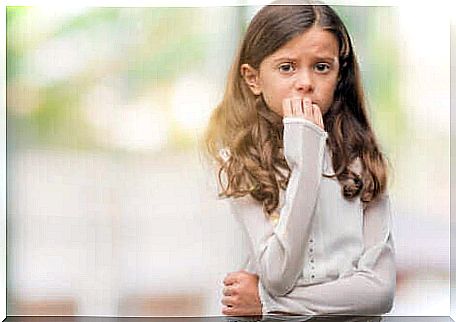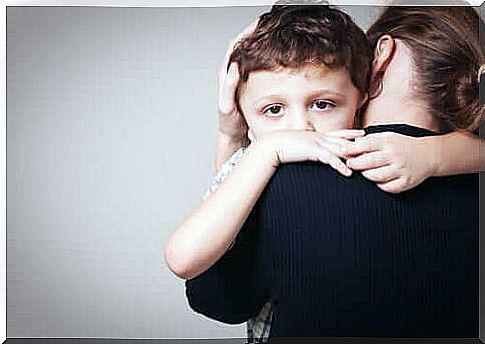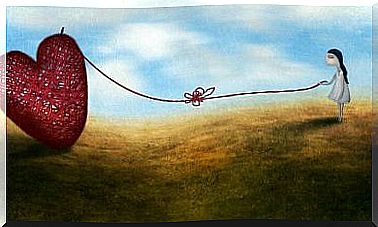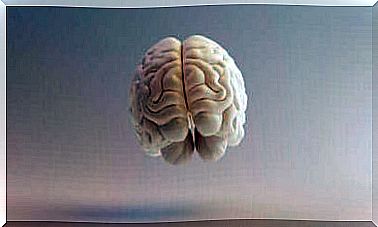Overprotective Families Without Displays Of Affection

There are some weird mixtures that can do a lot of harm : one of them is overprotective families without displays of affection. While this may sound a bit contradictory, it is more common than you might think. These “strange” combinations are very numerous in the real world.
We are often told that a good education is based on a mixture of authority and “small doses” of affection. This understanding of affection has atrophied education in many families, with therapeutic prescriptions that take us away from a transformative education in which emotions play a fundamental role.
Overprotective families without displays of affection are one more version of a strange form of emotional repression that has long been passed down from generation to generation.

Overprotective families: what are they like?
In terms of functional analysis, the person who suffers from abuse within a family expresses a function through his behavior: experiential avoidance, a behavioral escape from the reality with which he is confronted. His environment does not offer him reinforcing elements, only aversive stimuli.
His behavior is therefore a response to all of this. Experiential avoidance is an escape from pain and, therefore, from life itself. In overprotective families without displays of affection, corrections or neglect may not exist. Nevertheless, in these families, we endure love without feeling it.
When there is high overprotection in the family but the senses of touch, sight or hearing are not used to express affection, the more likely it is that someone ends up trapped in this family dynamic. This family uses conflicting codes of conduct: I protect you, but I am not your refuge.
Many teachers or family friends may say “this family seems to take good care of their child.” However, there is a deficit of reinforcing behaviors, a lack of displays of affection and an appropriation of autonomous behaviors.
A small example
Take the example of a 40-year-old man who consults a psychologist without knowing what has been happening to him for years. He has very marked values, especially in relation to what he does not tolerate.
All the logic that had been instilled in him within the family had to do with what he should not do. It had conditioned him to have extreme sensitivity to punishment and almost none to reinforcement.
His mother never kissed or hugged him or, if she did, it was after “a scare or when he was sick”. But she was fine to pick him up from school, he was always well dressed and he liked the fact that his mother was a very good cook. She took care of everything.
This person expresses that he is unable to fully benefit from certain experiences. She suffers a lot imagining all the bad things that can happen to her children and hardly takes their successes into account.
For him, feeling is associated with tension. He often has time off work due to his depression. And no matter how hard he tries, he doesn’t feel qualified in this world.
Parents in the helicopter who never let their children land
The case of the previous patient is the result of a “helicopter mother” and an absent father. The problem is that when one member of the couple is physically absent, the other is far too much. This results in excessive attention which ends up weighing on the development of the autonomy of the child.
Psychologists Holly Schiffrin and colleagues at the University of Mary Washington noted how education in the helicopter model affected the self-determination and well-being of college students. This type of education is indeed associated with anxiety and depression.
It produces, in the long run, a decrease in terms of vital satisfaction.
Overprotective families: I don’t hurt you, but no good either
Children may experience a lack of love and care, even when there is no explicit indication that the parents are cold, aggressive, or neglectful. Many parents use expressions of love and affection as an educational tool.
This is known as token rejection, often expressed verbally in the form of possible implied punitive measures. “I don’t like you when you put yourself in this state ” or ” I love you, especially when you behave as well as tonight. “
Children and adolescents experience them as a lack of real love for themselves. Because love should not depend on success and good behavior. From the perspective of these children, they can hope for nothing more than transient and meritocratic love.

The consequences of overprotective families and helicopter parents
An unbalanced education can turn children into academics. In return, this educational benefit comes at a high price. Many are not prepared for life. They indeed develop a dependent personality and grow up without a ground on which they could become more responsible vis-à-vis the decisions they make.
Psychologists have repeatedly found that adolescents and adults with anxiety disorders, especially those focused on social interaction, are more likely to come from homes with overprotective parents.
Experiments have shown that anxious parents tend to have anxious children. Why ? Because parents show that fear, concern, and emotional abstinence are good reactions to any situation.









